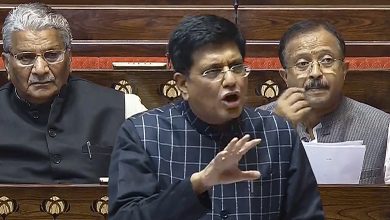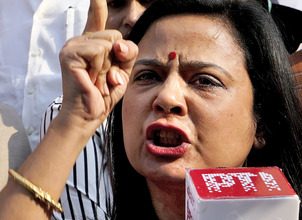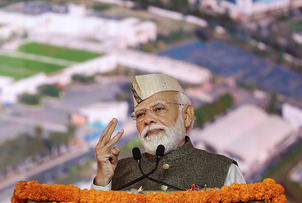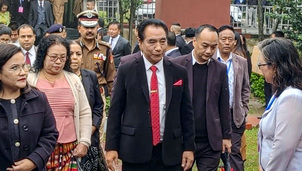India’s COVID-19 crisis warning of likely events in other poor nations

Washington, May 22 (PTI):
Observing that the ongoing “catastrophic” second wave of COVID-19 in India is a sign that the worst may be yet to come, the IMF has said that the situation in the country is a warning of the possible events in low- and middle-income nations that have seemingly escaped the pandemic till now.
A report co-authored by International Monetary Fund (IMF) economist Ruchir Agarwal and its Chief Economist Gita Gopinath also said that under the business-as-usual scenario, the vaccine coverage in India is expected to remain under 35 per cent of the population by the end of 2021.
The ongoing catastrophic second wave in India, following a terrible wave in Brazil, is a sign the worst may be yet to come in the developing world, it said.
While India’s health system held up fairly well in the first wave, this time its health system is so overwhelmed that many people are dying because of a lack of medical supplies like oxygen, hospital beds, and medical care, the report said.
“India is a warning of possible events in other low- and middle-income countries (LMICs) that so far have seemingly escaped the pandemic, including in Africa, it said.
For India, the report said, current bilateral purchases of vaccine plus coverage from COVAX will cover about 25 per cent of its population by the first half of 2022.
To get to 60 per cent coverage, India will need to immediately place sufficient vaccine orders of about 1 billion doses through contracts that incentivise investment in additional capacity and augmentation of the supply chain. In this context, the authorities’ recently announced financing of about USD 600 million to the Serum Institute of India and Bharat Biotech to boost production capacity in the near term is a welcome step, the report said, adding that authorities estimate that two billion doses will be available by the end of 2021.
Efforts should be made to ensure that the projected production capacity will materialise without delay, including through securing the supply chain for raw materials supported by international efforts to eliminate export restrictions on all critical inputs, it added.
In its report, the IMF said that an urgent focus should be to eliminate constraints on cross-border exports of critical raw materials and finished vaccines. Free cross-border flow of vaccine inputs and supplies is essential for the world to achieve its vaccination targets without delay. Governments are taking steps to relax such constraints on raw materials, it said, citing the recent pledge by the US to facilitate greater access of critical raw material to Indian manufacturers after severe shortages emerged.
However, there is scope for greater multilateral action on this front, as significant constraints still remain, it said.








